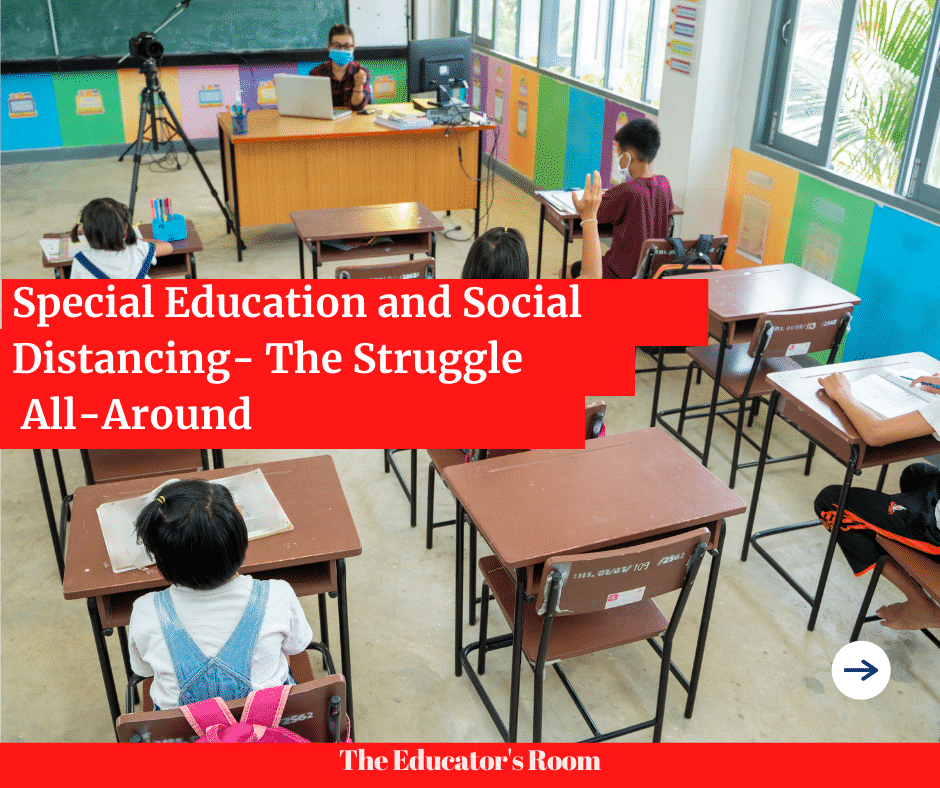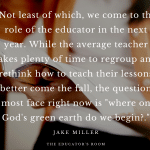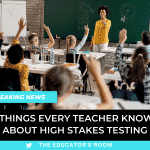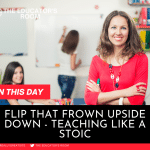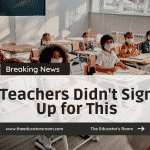
Erin Popper has been a Special Education Teacher in Florida for seven years. She has taught a wide range of disabilities in various classroom settings. She earned her Master’s Degree in Special Education from Florida Gulf Coast University in Ft. Myers, FL.
Erin’s extracurricular activities include, but are not limited to, coaching high school swimming, writing articles for various websites and blogs, and has started a photography business. She has used these photography skills not only for portrait and scenic material but also to help educate and support rare disease websites and social media pages. Other hobbies include kayaking and powerlifting.
Here in sunny Florida, COVID-19 seems to have drained many teachers of their drive. I have yet to meet an educator who has put It into overdrive to overcome the struggles that social distancing, eLearning, and gaps in educational retention from the previous year presented us with. It’s all too much. Where do you even start? A union representative recently sent out word that within their ten years of being with the union, he had only witnessed 2 cases of abandonment (teachers leaving without fulfilling their 30-day notice). Since returning in August, there have been 30 cases in our district alone. That’s astronomical, and the only ones getting the adverse effect are our students and children.
The lost knowledge
I’m sure you’ve heard talk radio, read blogs, or experienced yourself some of the severe cases of regression our students have had since we shut down in March. Did your school or state give students time, resources, and guidance for us teachers to get these students back on track? It seems to me we just picked up on our typical curriculum maps and said, here’s one flex week; see what we can do. Well, I’m sorry, maybe…MAYBE a high functioning student in the general education setting who had parental help with academics at home can catch up, But what of those students who were home alone, being ignored, completely lost, or didn’t log in on virtual learning since March? That’s almost six months of no schooling for those students. They need time to catch up. I work in a Title 1 school, and I have seen the regression across all grade levels, across all genders, and 90% of my students with some disability have regressed on one or more of their IEP goals. WE NEED TIME. We need to infuse those lessons and standards from the previous year into our schedules, and we NEED to help the kids. We need to help them regain that lost knowledge. If we don’t stop to reteach it now, they may always be missing a gap somewhere.
Inclusion models:
As a special education teacher myself, we run an inclusion model where I, or the special education teacher, come into the classroom and work with a small group of students. Enter social distancing. There’s no room. Literally, our desks are spaced out and still have around 23 students in a room, and there is physically no space left. So, do I go in and assist to the best of my ability? Teach to one half of the room while the other teacher works with the second half? With everyone spaced out, it’s nearly impossible to keep teachers teaching simultaneously, maintaining attention, and still teaching something.
In one instance, we were guided to take the students into a small group and sit on the FLOOR. I’m okay with that, but then are we ignoring social distancing for that time? Then why can’t we have our tables back? What is the REAL difference? It’s frustrating and slightly discouraging to constantly fight this battle of space to give students the services they need. In one instance, I had tried taking my group of five and spacing them out in our pod area where each student had more than 6 feet between us and had a quiet space to focus. I was immediately reprimanded for going against the inclusion model. I get it, but I want to do the best for my students, and when a 5th grader is sitting in class who is being asked to divide decimals, can’t even remember how to subtract with regrouping, we have to give a little to meet them where they are at. Isn’t that where I can step in and provide that specially designed instruction? Typically, yes, but this year it’s more difficult and more crucial than ever.
Standardized Tests:
Considering the previously mentioned inclusion model struggles, the lost knowledge that no one is trying to relearn, and now standardized tests are back and running like normal. The anxiety alone is heart-wrenching to see these students go through, but the stress weighs on the teachers. FSA (Florida Standards Assessment) is right around the corner for us, and with the emotional stress Covid-19 has had on our students and staff, I can only say ‘shame on the state’ for continuing with testing. There have been rumbles about not using the scores, but why put the students through it then? Personally, a lot of my students who receive small group accommodations already have testing anxiety to some degree. Our state pushed out an Adaptive Progress Monitoring tool that was a state program, completely optional, but my district went ahead and said, “YES, we will do this” make 3 of my ten students break down in tears because they didn’t know how even to use the tools on the program. Great idea for us to do that to 3rd graders who have never taken a massive test before… right? Now they’re probably always going to feel some angst towards the next test, which, unfortunately, is the FSA this year.
So tell me, if you teach in Florida, or another state, what has been your most immense struggle this year?
